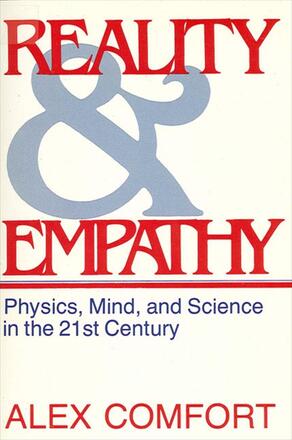
Reality and Empathy
Physics, Mind, and Science in the 21st Century
Alternative formats available from:
Description
Once in a century an overview shakes the mold of preconception and makes a world model fall into shape. This is such a book—absorbing, provocative, original, skeptical, and often very funny in spite of formidable scholarship. The focus of the book is on the change in self-perception which physics might bring about if it were made in some way empathically real to non-physicists. The common man's "existential" attitude is a product now of nineteenth-century, mechanistic models. But in pursuing this, the author lays out a comprehensive survey of impending changes in the philosophy of science, and ranges through physics, biology, mathematics, Jungian psychology, and evolutionary theory, turning also to look at other, non-Western-scientific, world models.
"In the task of reshaping the world model of scientists and others, only commitment to the discipline of science will do. It can be combined with enough controlled lunacy to bring conventionally self-evident ideas of reality into question (in mathematics this has always been a winning mixture), but it has to produce testable predictions. "
"What we are now looking at is the prospect of 'Jungian physics': a physics model which also addresses the image-forming mechanism and possibly even the non-locality of mind. "
"The hard-hat model of an objective reality has had to yield to a growing perception that the objective is, in form at least, a construct: what we appear to see is a function of the manner of seeing (hardly a new idea to Greek philosophy), but with the awkward complication that the cogitating I arises from the structures which it sees and orders. "
Dr. Alex Comfort is a physician, research biologist, writer, and currently Adjunct Professor at the Neuropsychiatric Institute at the University of California at Los Angeles. Educated at Trinity College Cambridge, where he was Robert Styring Scholar in Classics, he was for many years Head of the Medical Research Council Group on Ageing at University College, London. His publications include textbooks, literary and popular works, and more than two hundred scientific papers in biology, medicine, psychiatry, mathematics, and philosophy.